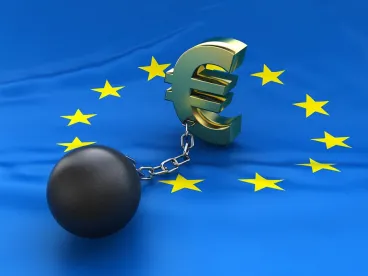We have created a list of major legal shifts that await General Counsel and Compliance Officers in the areas of competition, EU regulatory and trade in 2017. These challenges may have an impact on your corporate and commercial strategies.
Our predictions include:
Regulatory Surge and Assertive Application of EU Rules
-
Merger Control: Enforcement of Procedural Rules
-
Cartel Enforcement and the Need for Compliance
-
State Aid: Extension of the Notion of Aid, Tax and Energy
-
Competition Damages Claims: Implementation of the EU Directive
-
EU Regulatory Changes for a Wide Range of Products and Services
Disruptive Technologies and Productivity Growth. In Need of More Regulation?
-
Innovation: Increased Importance in Competition Investigations
-
Digital Single Market: Online Sales
-
Intellectual Property and Competition: From SEP and FRAND to Internet of Things Issues
-
Data Protection: Compliance With the New General Data Protection Regulation
The Future is Unchartered Terrain and is Uncertain. International Trade and the Reopening of Negotiations
-
Trade Agreements and Protectionism
-
Brexit: Quo Vadis?
-
S. Sanctions Regime
1. Merger Control: Enforcement of Procedural Rules
Recent merger enforcement activity in the EU shows that there is increasing scrutiny of the conduct of merging parties during merger investigations. The European Commission is currently investigating a company for allegedly providing misleading or incorrect information in the context of a merger notification two years ago. The obligation to provide accurate information during merger investigations must be taken seriously and applies not only to the merging parties, but also to intervening third parties who are asked to provide information by the authorities.
Merging companies must also ensure that during the merger review process and before obtaining clearance, they conduct business as usual and avoid any conduct that could compromise the acquired company’s competitiveness. So- called “gun-jumping activities” are frequently scrutinized by the US competition authorities and European Commission. EU national competition authorities are now also demonstrating an increased willingness to impose significant fines if confronted with gun-jumping practices: the French competition authority recently imposed an €80 million gun-jumping fine on merging parties in the telecom sector for coordinating their activities prior to obtaining clearance.
2. Cartel Enforcement and the Need for Compliance
2016 marked a record-breaking year for the European Commission issuing its largest ever cumulative fine totalling €3.726 billion. Substantial fines can continue to be expected in 2017 as a result of the Commission’s pending investigations. Member States continue to be aggressive in their domestic cartel enforcement. Germany in particular has been very active in imposing fines and opening significant investigations in a large variety of sectors. Bid-rigging in the construction sector is likely to be an area of focus in Central and Eastern Europe. Compliance therefore remains highly topical for companies wanting to avoid cartel investigations.
3. State Aid: Extension of the Notion of Aid, Tax and Energy
The notion of State aid was extended once again, in very recent EU case law just before the end of 2016. The Court of Justice of the European Union has in particular construed the concept of ‘selective advantage’ in fiscal measures in the broadest manner. This decision stresses the importance of State aid control for tax measures, as exemplified by the European Commission’s wave of recent challenges to outlier tax rulings. Energy is also one of the European Commission’s top priorities in State aid control. New State aid investigations are expected regarding wide spread national support measures for renewable energy production and enhanced energy efficiency as well as capacity mechanisms in electricity markets.
4. Competition Damages Claims: Implementation of the EU Directive
We have already seen an increase in antitrust litigation, which will accelerate in 2017 against the backdrop of the biggest piece of EU competition legislation in years: the new Damages Directive. The ramifications of the new Directive will be felt more strongly by those jurisdictions with a tradition of litigation, such as the UK, the Netherlands and Germany. Nevertheless, it will only be a matter of time before plaintiffs discover other, more beneficial jurisdictions. Brexit will be a blow to the UK courts, but the newly empowered Competition Appeal Tribunal will no doubt remain an attractive forum.
5. EU Regulatory Changes for a Wide Range of Products and Services
From medical devices and e-cigarettes to construction products, 2017 will bring new harmonized rules for the marketing of several different products in the EU. These rules concern, for example, new risk classifications, changes to the approval process, and traceability requirements. Furthermore, cross-sector regulations have been revamped (e.g., electromagnetic compatibility and low voltage). Increased compliance responsibilities for each operator in the supply chain combined with heightened supervision by authorities for each of these product rules, may bring about increased allegations of non-compliance and liability for manufacturers, importers and distributors. As with goods, regulatory requirements for several services are also being updated. This is notably the case with the proposal for a new regulatory framework for digital markets and telecom services, covering, for example, broadband access & infrastructure investment, radio spectrum allocation and internet-based ‘over-the top’ (OTT) services such as voice and video calling, text messaging, video content delivery and social networking.
6. Innovation: Increased Importance in Competition Investigations
Innovation has become a top priority for the European Commission, as stressed in recent speeches and policy briefs. We expect this trend to continue in 2017, with a particular focus on intellectual property-intensive and the technology industries. On the antitrust front, 2017 will reveal whether innovation considerations could become an alternative to traditional foreclosure analysis in ongoing abuse investigations in the sector. We can also expect innovation effects to feature prominently in merger review in technology, agrochemical and pharmaceutical industries. As a result of the increasing role of innovation, companies should be prepared to face more complicated and lengthy investigation procedures.
7. Digital Single Market: Online Sales
The European Commission is expected to issue its final report on the outcome of its e-commerce sector inquiry in the first quarter of 2017, which will likely be followed by enforcement activity in the online distribution sector as well as by a revision of the current EU rules on distribution as they relate to online sales. The Commission is seeking to remove barriers to online sales in the EU and is monitoring bans on sales on online marketplaces and other limitations to cross- border online sales. Companies that engage in online sales will need to ensure their distribution arrangements are in line with the Commission’s new guidance and rules. In a parallel move, the Commission is looking to regulate parcel delivery rates by way of a price cap to encourage online sales.
8. Intellectual Property and Competition: From SEP and FRAND to Internet of Things Issues
The enforcement of standard essential patents, related disputes concerning royalty obligations and licensing terms will remain hot topics, and 2017 will see national authorities and courts fleshing out the conditions for Standard Essential Patent (SEP) enforcement set out in EU case law. The Internet of Things will further increase the need for interoperability and access to related IPRs, and we are likely to see diverging views on both sides of the Atlantic with the EU taking a more interventionist approach in particular with regard to pricing. Patent settlement and other deals involving generic drugs manufacturers in the life sciences industry remain in the spotlight.
9. Data Protection: Compliance With the New General Data Protection Regulation
The GDPR will transform data protection in the EU and will widen the gap with other regimes, in particular with the US. With the GDPR coming into application in May 2018, companies processing or monitoring data of EU consumers in the course of their business will use 2017 to overhaul their internal procedures and compliance policies, including in relation to personal data breaches. The compliance efforts will also address the increased risk of fines under the new regime. The GDPR will leave room for national differences across the EU which will make the exercise challenging. Data protection authorities, the European Commission and the Article 29 Working Party continue to issue guidance papers clarifying the numerous aspects of the GDPR calling for interpretation. Brexit will add a layer of uncertainty as the GDPR will no longer apply in the UK.
10. Trade Agreements and Protectionism
The Trump campaign made a point of highlighting the incoming president’s dislike for NAFTA, TPP and TTIP, among other free trade agreements. Our experts are already anticipating the next administration’s possible stance with regard to free trade and analyzing possible recourse and actions that international businesses may opt for in the changing global trade landscape of 2017.
11. Brexit: Quo Vadis?
Not a day goes by without Brexiteers and those opposing Brexit arguing their case. The UK Prime Minister confirmed the principle of a “hard” Brexit and the uncertainty for businesses continues to increase. 2017 will see Article 50 EU being triggered and the beginning of exit negotiations with the EU. The UK Government will start to define its roadmap, and it remains to be seen whether a credible opposition will be able to exert any influence in Parliament. Although the UK economy has been resilient thus far, companies will react promptly to an increased level of uncertainty and any suggestion that their business is suffering as a result of Brexit. Businesses are well advised to review their exposure and address the most relevant issues as they relate to employment, competition, data protection, litigation, supply arrangements, trade, etc. In addition, it remains to be seen whether Brexit will influence the upcoming Dutch, French and German elections, the outcome of which could significantly change the balance of power in Europe if the electorate decides to upset the status quo.
12. U.S. Sanctions Regime
Russia, Iran, Cuba, and even China loom large on the horizon of U.S. politics. A new Trump administration has promised to change, if not upend, the course of current U.S. sanctions policy.







 />i
/>i

